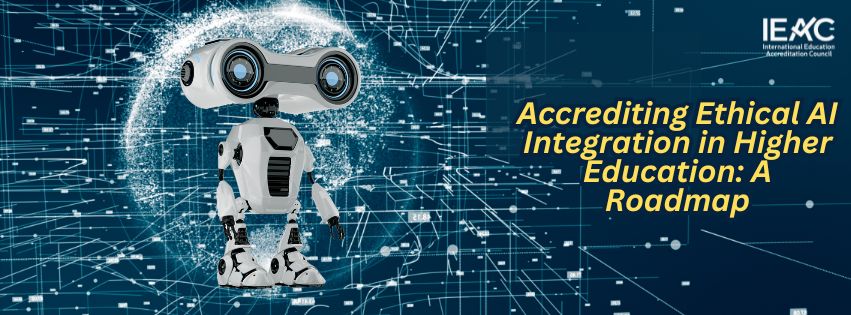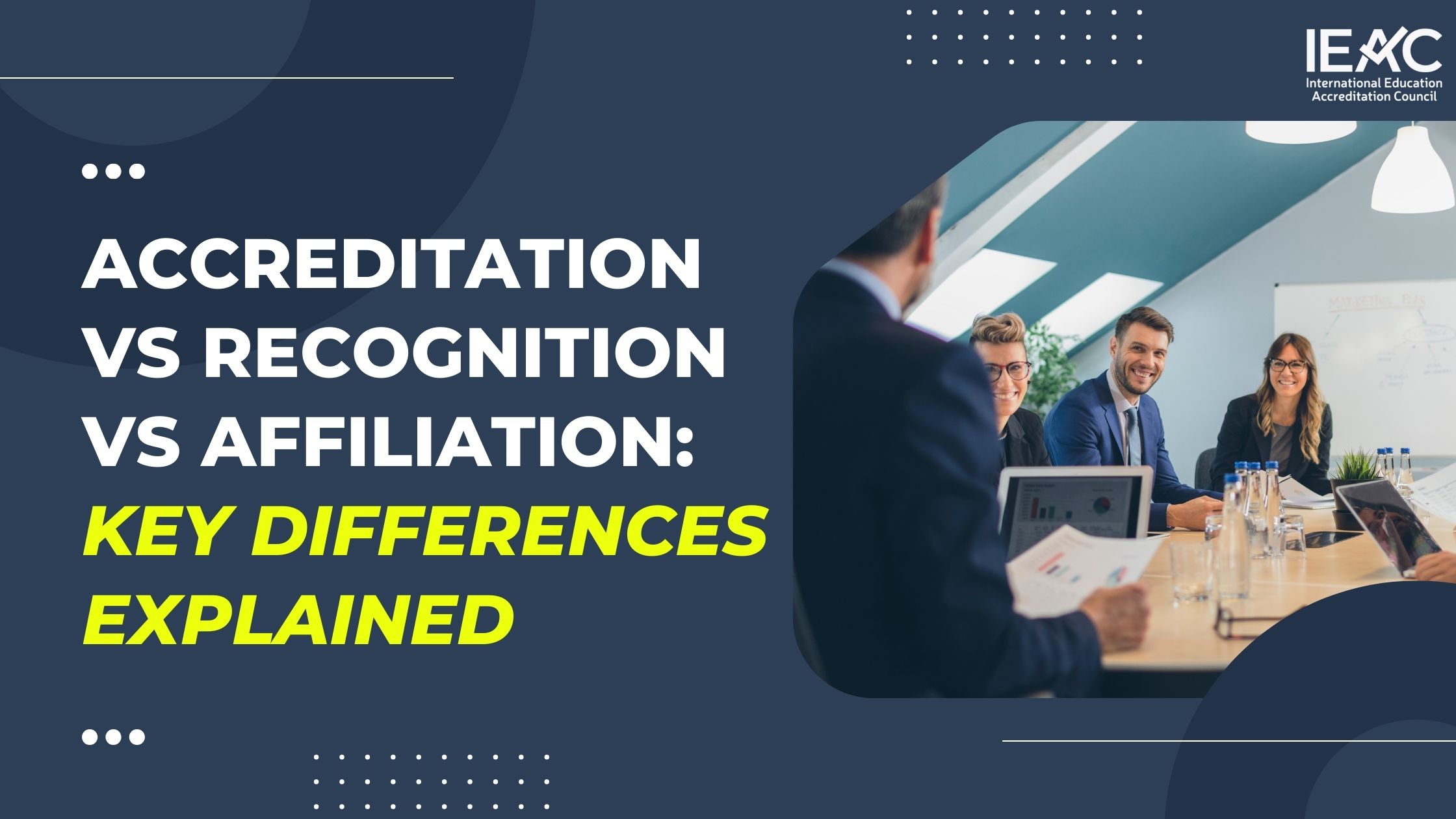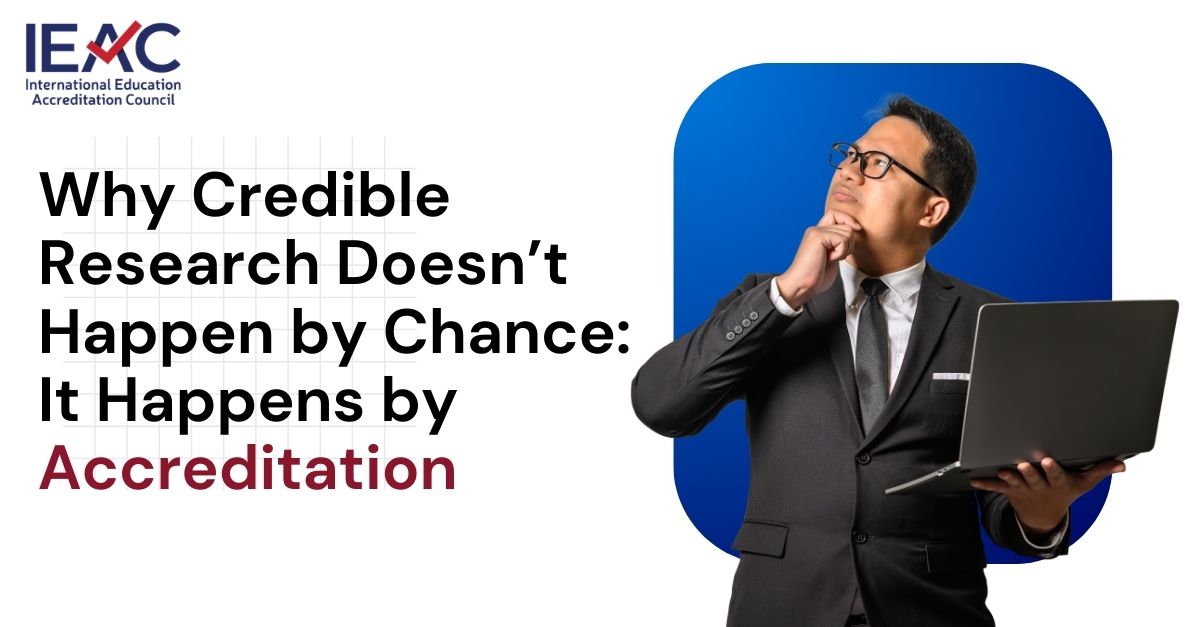- Home
- About IEAC
- Accreditation
- University Accreditation
- College Accreditation
- Online Institution Accreditation
- School Accreditation
- University Recruitment Agency Accreditation
- Programmatic Accreditation
- Teacher/ Lecturer Accreditation
- Religious Institutes Accreditation
- Affiliate Accreditation
- Research Accreditation Candidacy Accreditation
- IEAC Membership
- Institutions Accredited
- Accreditation Process
- Contact Us Webinar Apply Now
Blog
Accrediting Ethical AI Integration in Higher Education: A Roadmap
Lorem ipsum dolor sit amet, consectetur adipiscing elit, sed do eiusmod tempor incididunt ut labore et dolore magna aliqua. Quis ipsum suspendisse ultrices gravida. Risus commodo viverra maecenas accumsan lacus vel facilisis.

Accrediting Ethical AI Integration in Higher Education: A Roadmap
Over 70% of higher education institutions globally are expected to integrate AI tools into their teaching and administration processes, according to a report by HolonIQ. These tools start from plagiarism checkers and automated tutoring bots to sophisticated AI models that customize learning pathways.
Though, the promise of AI comes with risks, algorithmic bias, impervious decision-making, privacy violations, and the possible loss of academic integrity. Accrediting bodies, now face the urgent task of expanding their frameworks to assess how ethically and effectively AI is being integrated across educational institutes.
The Role of Accrediting Bodies in the AI-Driven Era
Earlier, accreditation has focused on curriculum quality, faculty credentials, institutional governance, and student consequences. In the age of AI, the remit is expanding to comprise:
- Algorithmic Transparency: Institutions must prove how AI tools operate, what data they use, and whether decisions are explicable.
- Equity and Inclusion: Accrediting bodies must ensure AI systems do not strengthen existing biases or marginalize underrepresented student groups.
- Student Data Privacy: Accreditation frameworks now need to review how student data is collected, stored, and used by AI tools.
Establishing AI Ethical Standards for Institutions
Accrediting bodies must define what “ethical AI integration” looks like. A roadmap includes several pillars:
a) Governance and Oversight
Institutions should establish AI ethics committees responsible for vetting and overseeing AI tool adoption. These committees should include faculty, IT staff, student representatives, and external experts.
b) Transparency Audits
Annual audits should be mandatory, ensuring all AI systems used in student-facing services are transparent and explainable. Accrediting bodies must require institutions to submit reports detailing AI models’ functioning and rationale.
c) Bias Mitigation Protocols
With AI systems being only as unbiased as the data they’re trained on, universities must demonstrate efforts to test and retrain AI models to prevent bias. For instance, automated grading tools should be regularly evaluated for disparities in grading by gender, race, or language proficiency.
d) Digital Literacy and Student Rights
Students must be educated about their interactions with AI, their rights, and the limitations of these tools. Accreditation should require courses or orientation modules on AI ethics and digital citizenship.
Some Key Statistics That Shape the Landscape ---
- 72% of global universities plan to increase AI-related budgets by the end of 2025 (Educause Review, 2024).
- 55% of students in a 2024 OECD survey said they were unaware AI was influencing their learning content.
- Only 18% of universities currently audit AI tools for algorithmic bias, as per a 2024 UNESCO report.
These numbers indicate a major gap between implementation and ethical oversight—an area where accreditation can bridge the divide.
Evaluating Institutions: An Extended Accreditation Checklist
To stay relevant, accrediting agencies must adapt their evaluation frameworks. A sample checklist for 2025 might include:
- Are AI-powered tools used in grading or admissions audited frequently?
- Has the institution conducted an AI impact assessment within the last academic year?
- Do students have access to human alternatives for AI decisions (e.g., appeals process for automated grading)?
- Is there a documented procedure for handling AI failures or ethical fissures?
Institutions that cannot meet these benchmarks risk losing their accreditation status—or being flagged for review until they achieve compliance.
Global Collaboration and Guidelines
AI is not confined by borders, and neither should accreditation efforts be. Global organization such as UNESCO is actively pushing for shared ethical standards in educational AI.
In 2025, a joint framework titled "Global AI Ethics in Education Charter" is being rolled out, providing a standardized code of ethics for AI use in academia. Accrediting bodies are encouraged to align their local standards with this global charter.
Accreditation as the Backbone of Responsible AI in Education
In the race toward AI-enhanced education, ethical misunderstanding cannot be an afterthought. While AI offers transformative potential, from personalized learning paths to predictive analytics, it also presents risks that, if left unchecked, could compromise student rights, academic fairness, and institutional truthfulness.
Accrediting bodies are uniquely positioned to ensure that AI is used not just efficiently, but responsibly. By expanding their frameworks to include governance, transparency, equity, and accountability, they can safeguard the human values that form the foundation of education.






